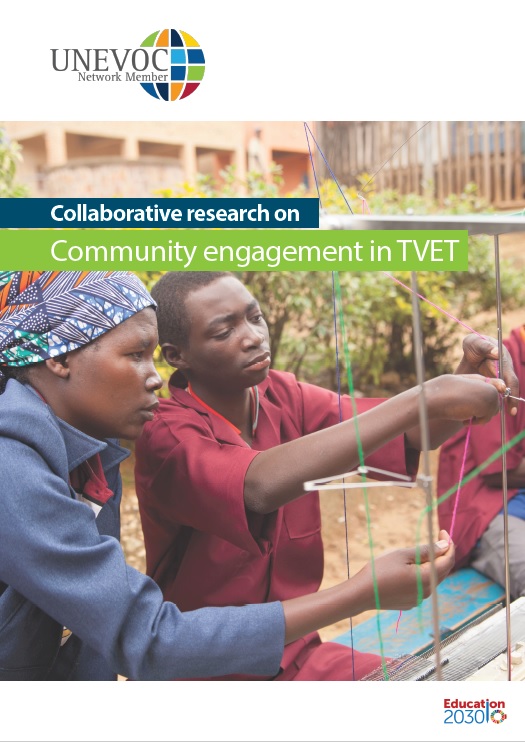
The UNESCO-UNEVOC International Centre: Who We Are | What We Do | Working With Us | Get in Touch
The UNEVOC Network: Learn About the Network | UNEVOC Network Directory
For Members: UNEVOC Centre Dashboard
Thematic Areas: Inclusion and Youth | Digital Transformation | Private Sector Engagement | SDGs and Greening TVET
Our Key Programmes & Projects: BILT: Bridging Innovation and Learning in TVET | Building TVET resilience | TVET Leadership Programme | WYSD: World Youth Skills Day
Past Activities: COVID-19 response | i-hubs project | TVET Global Forums | Virtual Conferences | YEM Knowledge Portal
Our Services & Resources: Publications | TVET Forum | TVET Country Profiles | TVETipedia Glossary | Innovative and Promising Practices | Toolkits for TVET Providers | Entrepreneurial Learning Guide
Events: Major TVET Events | UNEVOC Network News

| Author/s: | Pierre-Luc Gagnon |
| Publisher/s: | Cégep de la Gaspésie et des Îles Canada |
| Published: | 2019 |
| Licence: | CC BY-NC |
This study looks at how community engagement is carried out in UNEVOC Centres across the UNEVOC Network’s five regions: Africa, Arab States, Asia and the Pacific, Europe, Commonwealth of Independent States (CIS) and North America, and Latin America and the Caribbean.
The objectives of the study are to: (i) collect information on how community engagement is addressed in technical and vocational education and training (TVET) institutions in different countries and regions; and (ii) address how to adapt a community engagement framework to different situations and TVET systems. The study’s methodology is adapted from the Delphi model, which is a survey-based methodology for obtaining consensus.
This report discusses different forms of community engagement and identifies the most active stakeholders. The report also looks at key factors playing a role in the success or failure of community engagement, and the main assesses the benefits of promoting community engagement.
The report finishes by introducing a community engagement framework for institutions interested in either initiating community engagement initiatives or scaling up ongoing initiatives.
This collaborative research project was implemented by